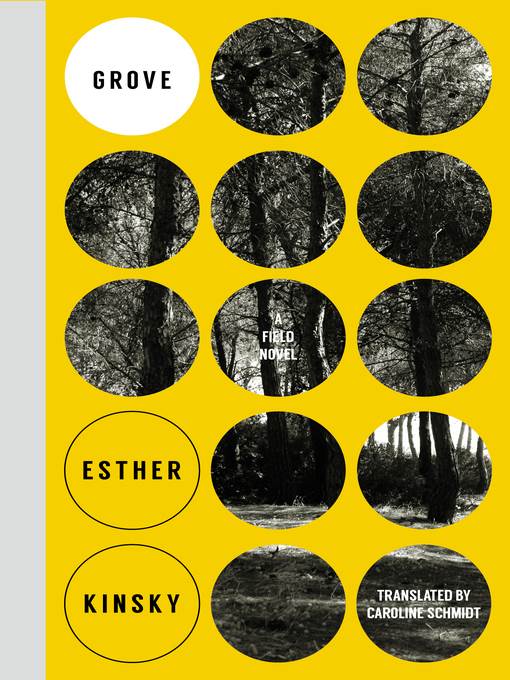
Grove
A Field Novel
کتاب های مرتبط
- اطلاعات
- نقد و بررسی
- دیدگاه کاربران
نقد و بررسی

Starred review from May 15, 2020
Poetic and painterly, a meticulously observed contemplation of the world that was, the world that is, and the world that might have been and the boundaries that join and define them. Following the death of her partner, known only as "M.," an unnamed narrator travels to Italy, where she briefly settles among the muted rhythms of a small town nestled in the hills surrounding Rome. Able to approach this loss only obliquely, her mourning takes the form of meditative walks, deep immersion in memories and dreams, and explorations of strangers' gravesites in cemeteries to which she has no connection, a habit instilled by her late father during their travels through Italy in her childhood. Her father was a German speaker whose bond to Italy was formed at the borderland of cultures, through his affinity for its language, art, and history. This he passed on to her as well, and she retraces these earlier journeys and embarks on new discoveries, her thoughts unfurling slowly across the landscape, rising and falling with the hills of Lazio. Light and shadow, color and shape, time and distance shift vertiginously according to her vantage point and the scope of her focus, which dilates from minutest detail to sweeping panorama, then narrows again; her sense of place within the landscape and the wider world alters, too, with each change in perspective, suggesting that how one sees is at least as important as what one sees. Ancient Etruscan necropolises and the untended graves of the long dead speak to the persistence of presence even through the absence of anyone left to remember, as symbols continue to signify where no one exists to decipher their meaning. As she wanders unhurried on the perpetual threshold of spring, the observed nesting upon the remembered upon the fictive realities of literature and film, the narrator bestows equal care and attention on rusted-out construction materials and blowing trash as on blooming mimosas and elegant herons in the marshland around Ferrara, where she contemplates the works of Giorgio Bassani and the great palimpsest that is Italy. Here at last she untangles the question central to her explorations of memory and place: whether she belongs to the side of the vii, the living, or of the morţi, the dead. A philosophical jewel seeking revelation in interstices, absences, ruptures, and the passages between existence and memory.
COPYRIGHT(2020) Kirkus Reviews, ALL RIGHTS RESERVED.

Starred review from May 25, 2020
German writer and translator Kinsky (River) offers an exquisite and elusive diaristic work comprised of entries analogous to a researcher’s field notes. Kinsky follows an unnamed narrator who has sought refuge in Northern Italy after the death of her husband, M. The narrator’s references to M. are scant, and come to her in flashes of grief-laden memory. She heals by grounding herself in the present, detailing her excursions through Italian villages. Her observations of the landscapes are vivid and historicized (after seeing a Mussolini poster in a shop, she is unnerved by distant blasts from a construction site, which no one but her and the birds seems to notice), but the narrator’s descriptions of people, in particular a portrait of the narrator’s late Italophile father, are the most moving. By revisiting memories of her father, a jovial and troubling figure, the narrator is able to prepare herself for the more difficult acceptance of M.’s death. To call this a plotless novel would be a misunderstanding: Kinsky is a photographer’s novelist; her prose unravels like a roll of film as visual meditation. The true beauty of this work emerges with patience and contemplation.

























دیدگاه کاربران